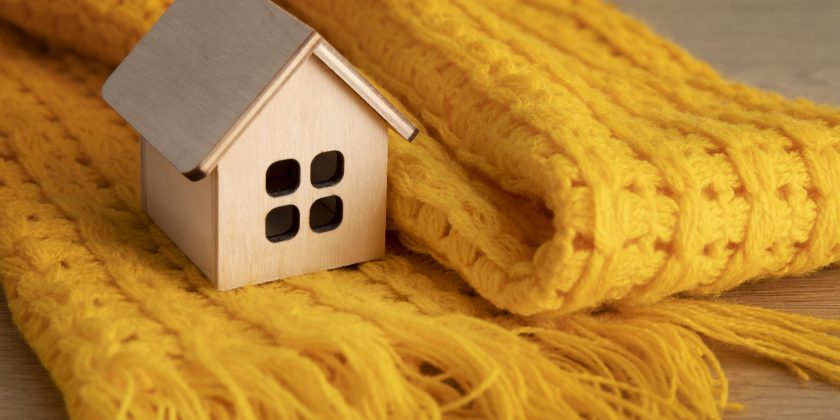Thinking about improving your home’s energy efficiency? Look no further than cavity wall insulation funding in Liverpool. This investment not only helps in reducing your energy bills but also contributes positively to the environment. In this comprehensive guide, we will delve into the benefits, process, and eligibility criteria for cavity wall insulation funding in Liverpool, helping you make an informed decision on this practical and eco-friendly home improvement solution.
Understanding Cavity Wall Insulation
Basics of Cavity Wall Insulation
Cavity wall insulation is a technique used to reduce heat loss in homes by filling the gap between the inner and outer layers of external walls. Most houses built after the 1920s have cavity walls, which consist of two brick layers with a space in between. Insulation materials such as foam, beads, or wool are injected into this space, creating a barrier that limits the movement of warm air out of your home. This simple yet effective method can significantly improve your home’s thermal performance, leading to reduced energy consumption and lower heating bills. By maintaining a more consistent indoor temperature, cavity wall insulation also enhances comfort levels, making your living space more enjoyable throughout the year.
Importance and Benefits of Insulation
Insulating your cavity walls is critical for several reasons. Primarily, it minimises heat loss, which is not only beneficial for keeping your home warm but also for reducing your energy usage. With less heat escaping, you’ll need less energy to maintain a comfortable temperature, resulting in lower heating bills. This cost-saving benefit is a substantial advantage for many households in Liverpool. Furthermore, insulation helps to curb carbon emissions, contributing to environmental conservation efforts. Besides the financial and ecological advantages, there’s the added comfort that comes with a well-insulated home. It can help to eliminate cold spots, reduce condensation on the walls and windows, and improve soundproofing. In essence, cavity wall insulation funding in Liverpool offers a pragmatic approach to achieving a more energy-efficient home while fostering a sustainable future.
Cavity Wall Insulation in Liverpool
Current State of Insulation in Liverpool
Liverpool, with its rich history and diverse architecture, has many homes that could benefit from improved insulation. While newer buildings typically incorporate modern standards of energy efficiency, a significant number of properties, especially those built before the 1990s, may lack effective insulation. In these cases, residents may experience higher energy costs and a colder living environment. The local government recognises the need for increased energy efficiency and supports cavity wall insulation funding in Liverpool to address these issues. As a result, there’s a growing movement towards retrofitting older homes with proper insulation. This push not only supports Liverpool’s commitment to reducing its carbon footprint but also aims to enhance the quality of life for its residents by making homes more comfortable and affordable to heat. With funding options available, there’s a concerted effort to ensure all homes in Liverpool can access the benefits of cavity wall insulation.
Local Liverpool Insulation Companies
Liverpool boasts a selection of reliable companies specialising in cavity wall insulation. These businesses provide a range of services, from initial assessments to the actual installation of insulation materials. Local companies understand the specific needs of Liverpool’s homes and are well-versed in the types of buildings and materials that are common in the area. They can offer tailored advice and solutions to homeowners, ensuring that the insulation is effectively installed for maximum benefit. Many of these companies also assist with the cavity wall insulation funding process in Liverpool, guiding residents through the application to ensure they can secure the financial support available. By choosing a local provider, residents can benefit from the personalised service and the peace of mind that comes with supporting local businesses. Additionally, local expertise ensures that any installation complies with UK building regulations and standards.
Cavity Wall Insulation Funding Liverpool
The Concept of Insulation Funding
Insulation funding in Liverpool is a form of financial assistance designed to help homeowners and landlords invest in energy-efficient improvements, such as cavity wall insulation, without bearing the full cost upfront. This support stems from a broader commitment by the UK to reduce carbon emissions and make energy usage more sustainable. Funding can come from various sources, including government grants, local council initiatives, and sometimes, energy companies themselves. The goal is to make insulation upgrades more accessible and affordable, especially for those in older properties or on limited incomes. By reducing the financial barriers to insulation, more homes across Liverpool can benefit from lower energy bills and enhanced living conditions. The funding often covers a significant portion of the installation costs, and in some cases, it might even cover the full amount, making it a financially viable option for a wide range of residents.
How to Access Funding in Liverpool
Accessing cavity wall insulation funding in Liverpool involves a few straightforward steps. Start by researching the available funding schemes, which can vary from national to local initiatives. It’s important to understand the eligibility requirements for each scheme, as they can differ based on factors like income, property type, and whether you’re a homeowner or landlord. Once you’ve identified a potential funding source, the next step is to complete an application. This process typically requires you to provide information about your property and may include evidence of your financial situation. After your application is submitted, it will be reviewed, and if approved, you’ll be given instructions on how to proceed with the insulation installation. Often, the funding body will have a list of approved contractors from which you can choose to carry out the work, ensuring the installation is done to a high standard and in line with the scheme’s requirements.
Practical Tips for Cavity Wall Insulation
Choosing the Right Insulation for Your Home
Selecting the right insulation for your home is essential to maximise energy efficiency and cost savings. The suitability of insulation material can depend on various factors, such as the age of your home, the type of walls it has, and the local climate in Liverpool. Common materials used for cavity wall insulation include mineral wool, polystyrene beads, and foam. Each has its own advantages; for example, mineral wool is known for its excellent thermal and acoustic insulating properties, while polystyrene beads are less susceptible to moisture. Foam insulation can provide a more airtight seal but may be more expensive. It’s vital to consult with a professional insulation installer who can assess your home and recommend the best option for your specific needs. They will ensure the material chosen complies with building regulations and has the right thermal performance to make your investment worthwhile.
Maintaining Your Wall Insulation
Once installed, cavity wall insulation typically requires minimal maintenance, but there are steps you can take to ensure it remains effective over time. Regularly inspect the exterior of your property for any cracks or damage that could allow moisture to penetrate the insulation. If moisture does get in, it can reduce the effectiveness of the insulation and potentially cause structural issues. Be vigilant about any signs of damp or mould on interior walls, which could indicate that moisture is present. It’s also wise to check the insulation’s performance by monitoring your energy bills. If you notice a sudden increase in costs, it could be a sign that the insulation is not working as it should. If you have any concerns about the condition of your insulation, contact a professional to assess the situation. Proper maintenance will help ensure your cavity wall insulation continues to provide maximum energy efficiency and comfort in your home.
Conclusion: The Future of Insulation in Liverpool
Anticipated Developments in Insulation Technology
The insulation industry is on the cusp of various technological advances that promise to make insulation even more efficient and environmentally friendly. One such development is the use of phase-change materials (PCMs), which have the ability to store and release heat, helping to regulate indoor temperatures more effectively. Another area of innovation is in materials that offer better performance with a thinner profile, reducing the space needed for insulation and offering solutions for buildings with limited cavity space. Additionally, there is ongoing research into bio-based and recyclable materials that could reduce the environmental impact of insulation. For Liverpool, these advancements could mean more sustainable options for improving energy efficiency in homes and commercial buildings. As technology progresses, residents can expect to see an even wider range of insulation solutions that align with Liverpool’s commitment to building a greener, more sustainable city.
The Role of Residents in Promoting Insulation
Residents play a crucial role in the widespread adoption of cavity wall insulation in Liverpool. By choosing to insulate their homes, individuals not only benefit from reduced energy bills and increased comfort but also contribute to the city’s broader sustainability goals. Residents can promote insulation by sharing their positive experiences with neighbours, which can help to dispel myths and encourage more people to consider insulation as a viable home improvement. Engaging in community initiatives and local government programs can also amplify the impact of insulation efforts. Furthermore, by giving feedback to service providers and local authorities, residents can help shape future insulation funding schemes and policies. Collective action has the power to drive demand for insulation services, leading to more skilled jobs in the sector and potentially lower costs due to economies of scale. In this way, the proactive involvement of Liverpool’s residents is pivotal in fostering an energy-efficient future for the city.



